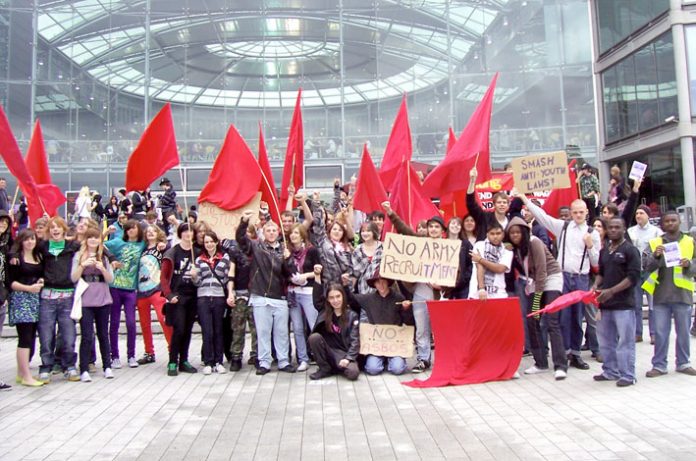
THE number of young people in long-term unemployment has soared by 41.9 per cent in the last year, the latest unemployment figures from the Office for National Statistics (ONS) published yesterday show.
The total number of 18 to 24-year-olds out of work for two years or more rose to 72,000 in the three months to June, up 11 per cent on the previous quarter, according to ONS.
The total number of 18-24-year-olds out of work is now 724,000, and 16-17-year-olds, 196,000.
A TUC analysis published ahead of the latest statistics found that the number of 18-24 year olds on the dole for over six months has increased in 142 local authorities across the UK since last year, compared to just 78 where it has fallen.
The ONS statement also said: ‘The quarterly increase in total employment was mainly driven by part-time workers, which increased by 115,000 on the quarter to reach 7.84 million, the highest figure since comparable records began in 1992.’
It added: ‘The unemployment rate for the three months to June 2010 was 7.8 per cent, down 0.2 on the quarter. The number of unemployed people fell by 49,000 over the quarter to reach 2.46 million.
‘The number of people unemployed for up to twelve months fell by 82,000, to reach 1.66 million.
‘However, the number of people unemployed for more than twelve months increased by 33,000 over the quarter to reach 796,000, the highest figure since the three months to March 1997 . . .
‘The number of people claiming Jobseeker’s Allowance (the claimant count) fell by 3,800 between June and July 2010 to reach 1.46 million.
‘The number of male claimants fell by 7,100 to reach 1.04 million, but the number of female claimants increased by 3,300 to reach 420,300.
‘The number of people claiming for up to six months increased by 7,200 on the month to reach 903,700. This is the first monthly increase in this series since April 2009.’
Public sector union Unison warned that ‘the latest fall in unemployment would be cold comfort to the hundreds of thousands of public sector workers faced with losing their jobs, and to the under 25s and over 50s, shut out of the jobs market.’
Dave Prentis, Unison General Secretary, said: ‘The small drop shows that the Labour government’s economic life-support plan was beginning to work.
‘This government is on the wrong track.
‘It needs to invest in jobs to keep the economy moving. Cutting spending now will reverse the recovery, and could lead to a double-dip recession.’
Paul Kenny GMB General Secretary said: ‘The latest unemployment figures show that the Tory-Liberal government, with the emergency budget and the Comprehensive Spending Review cuts, are taking an almighty gamble with the UK economy and that the gamble will fail.
‘The Tory claim that there is an economic necessity to make these savage cuts to close the deficit is to turn the truth on its head.
‘The fragile recovery under way places a fundamental duty on the government to sustain demand in the economy to ensure growth.
‘Getting back the six per cent of national output that was lost due to this bankers recession is the only sure-fire way of closing the gap between Exchequer income and expenditure.
‘Where is the growth going to come from? Private consumption is slowing and wage freezes and inflation are not helping.
‘Business investment will not take up the slack nor will exports. The reality is that government spending cuts will reduce potential growth in every year from 2011 to 2015.’
He added: ‘The public will wake up to the fact that the government’s goal is not simply to cut the deficit – its goal is to shrink the public sector, whether it be education, or transport, or health, or support for the less well off.’
He concluded by warning: ‘There will be a reaction to these savage cuts.
‘The GMB will join with all those in the community and in other organisations to defend our public services and to demand an economic policy that promotes growth.’